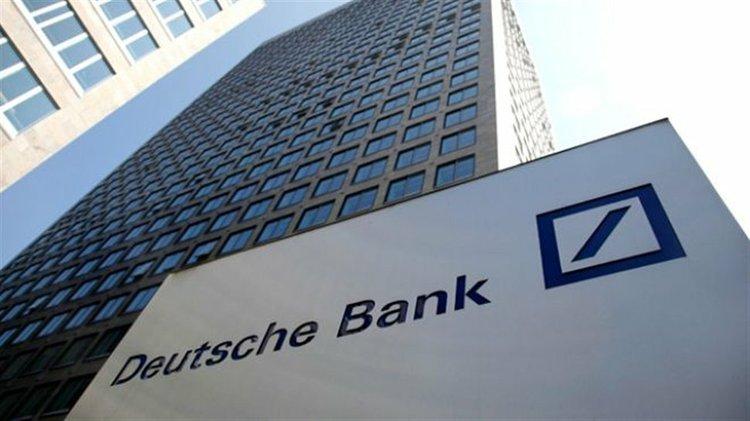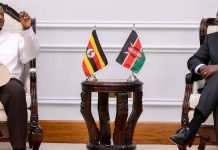By Faridah N Kulumba
Africa-Press – Uganda. On 15 May 2022, Deutsch Bank announced that will not be providing dedicated finance to the planned East African Crude Oil Pipeline (EACOP) project. Germany’s largest lender joined other commercial banks that have made commitments to avoid financing the USD 3.5 billion project.
The project’s first agreement
On 11 April 2021, the president of Uganda Yoweri Kaguta Museveni, and Tanzania’s President Samia Suluhu Hassan signed a $3.5 billion agreement for building an oil pipeline that will ship crude oil stretching more than 14,00 kilometers from fields in western Uganda to Tanzania. This project had stalled for more than a year during President John pombe Magufuli’s administration.
Second agreement
On 20th September 2021, the two countries held a meeting in which they agreed on the need for the Tanzanian government to address the bottlenecks ranging from border and work permits, and red tape, to the creation of a special fund meant to help local entrepreneurs. They also agreed that the government might do something to enhance financial institutions so that they could offer quick access to finance with no collateral and interest rate.
Grounds for not financing
According to a person with knowledge of the matter, Deutsche Bank and other insurers pulled out of EACOP after environmental campaigners came out and objected to the project saying that it will displace thousands of families and disrupt nature reserves.
Pressure
The pressure increased ahead of the bank’s annual general meeting in May 2022. The environmental activist group 350.org are organizing a series of protests in the coming days. The campaign called #STOPEACOP says on its website that the pipeline puts at risk water for millions of people, and will cut through land critical for elephants, lions, and chimpanzees. More than 100,000 people are being forced off their land and expropriated.
NEMC defense
The National Environmental Management Council (NEMC) castigated a smear campaign by western activists against the USD5 billion EACOP project. According to NEMC, the activists had an opportunity to air their views two years ago before NEMC and the minister responsible for the Environment issued a certificate of approval for the project. They added that what the activists doing now shows that they harbor ill motives against the project,
German lender’s side of the story
The statement issued by Deutsche Bank explained that the bank does not comment on clients, but that it “supports the transition to a low-carbon economy” and its policies prohibit it from knowingly financing projects that clear primary forest, areas of high conservation value, and peatlands. In recent years, Deutsche Bank has marked itself as a bank that companies can turn to as they transition to a greener future.
Project developers
The French energy giant Total (TTEF.PA) which is developing the pipeline with China National Offshore Oil Corporation, defended itself by saying that they were taking steps to mitigate the environmental and human impact of the project.
Activists fears
According to the activists, the project risks poisoning the water resources and wetlands of Uganda and Tanzania. Including the Lake Victoria Basin, on which more than 40 million people depend for drinking water, food production, and their livelihoods. This will violate a multitude of human rights, the rights to life and safety, the right to health, the right to freedom and expression, assembly and association, and the right to free prior and informed consent.
Extraction
Uganda discovered commercial oil deposits in its mid-western region over 14 years ago, but extraction was delayed due to the protracted negotiations with oil majors. According to the agreement, the pipeline was supposed to be completed within 36 months of the signing of the deal and this will commence the commercial production.
A six billion barrel-per-day refinery is planned to process crude oil and the finished products will be consumed by the local and regional markets.
German-Uganda and Tanzania energy
Meanwhile German is helping Uganda to develop renewable energies on a sustainable basis, supporting actions designed to raise energy efficiency and helping with the electrification of rural areas. Uganda-German cooperation is thus also making a significant contribution toward climate change mitigation. The BMZ is supporting both the construction of hydropower stations and the establishment of small off-grid photovoltaic systems for households and small enterprises. So far some 50,000 0ff-grid solar systems have been set up with German support. And in Tanzania, Deutsche Gesellschaft fur Internationale Zusammenarbeit (GIZ)works with the National Audit Office on good financial governance and supports efforts by the regulatory authority responsible for renewables and energy efficiency to establish frameworks for the future energy mix and to encourage private investment.
For More News And Analysis About Uganda Follow Africa-Press






